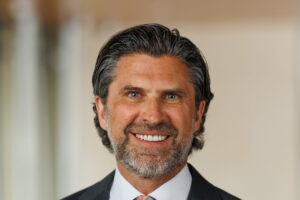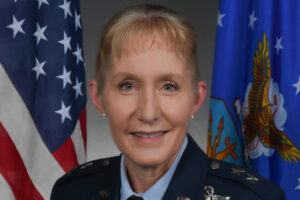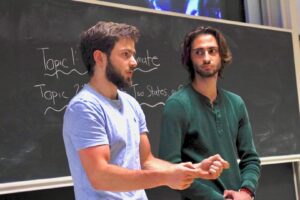Dr. Hans Mark is John J. McKetta Centennial Energy Chair in Engineering in the Department of Aerospace Engineering and Engineering Mechanics at the university’s Cockrell School of Engineering.
A very long time ago, I was an undergraduate student at the University of California in Berkeley. I was interested in physics, engineering and the Navy, in that order. I religiously avoided all humanities, social sciences and arts courses that I possibly could. Eventually, because it was a university requirement, I was forced to register for one course about Shakespeare taught by Professor Ernest Tuveson. I remember almost nothing about the course because my mind was clearly focused on the scientific, technical and naval studies.
Fast forward to 1963. I was working at the University of California’s Nuclear Weapons Laboratory at Livermore as the Experimental Physics Division Leader having earned a Ph.D. in nuclear physics at MIT. It was in that year we concluded a treaty with the Soviets to stop testing nuclear weapons in the atmosphere.
My superiors thought I should go to Washington and be one of the people to testify before a Senate committee that the treaty would hamper our weapons development work. I agreed with that position, and I thought I could do a competent job since I was directly involved in related experiments. I felt pretty good about appearing before a congressional committee because it had never occurred to me that I would be asked to do so. In short, I had the confidence of ignorance.
To prepare me for the hearing there was a “Murder Board” at the offices of the Atomic Energy Commission. The members of the board played the parts of individual senators.
Well, I got clobbered! The board members used appropriate quotations and epigrams from the classics to people like Will Rogers and Yogi Berra which totally destroyed my testimony in the question period. None of the sayings they quoted had anything to do with the subject, but they were devastating in debate. A skilled debater could select the perfect analogy and then use the literary skill of some long dead author to destroy any argument. I was not allowed to testify and I was sent home with my tail between my legs.
All of this was a major shock to my then overly developed ego. At the advanced age of 34, I learned that it was not enough to be a technological hot shot. One of my friends, who had also been in Professor Tuveson’s class, suggested that I go see him and get a reading list. And so, I finally began to read the great books.
I was able to spend the time to do this because my job required me to visit Washington three and sometimes even four times a month. I would board United Airlines flight 56 at midnight in San Francisco – this was the famous “red eye special.” The airplane was almost always empty (this was before airline deregulation!) so I could read for a couple of hours, then go to sleep for a while stretched out on a row of three seats and start my visits in Washington at 8 a.m. On the way back in the evening, on United Airlines flight 57, I had a nice dinner (they used to do that!) and then read some more before we arrived in San Francisco about 10:30 p.m.
It was on these flights, that for more than a decade, I began to read, first history, biographies, politics and then the great plays. Much to my surprise, I began to enjoy all of this immensely and so I stopped confining my reading to airplane flights. In addition two other Berkeley Professors became my mentors, Tom Parkinson (English) and Paul Seabury (Government).
Fast forward to 1988. I was the chancellor of the University of Texas System, and I had created a position for an “academic assistant to the chancellor.” I wanted to have someone in my office who would occasionally remind me and the UT System staff that we were running a university, not a law office, or a lobbying firm, nor an investment house.
University of Texas at Austin English Professor Larry D. Carver held this position from 1986 to 1988. He once told me that my acquisition of a liberal arts education was exactly what Plato prescribed in the Republic.
He pointed to a discussion between Socrates and Glaucon in Book 7 talking about the education of the “guardians” (i.e., people with high SAT scores!). They concluded that between the ages of 20 and 30 they should study “arithmetic, geometry, the motion of solids (mechanics) and astronomy.” For five years thereafter, they should study “philosophy” and at age 35 the “guardians” would go out and do “useful things” for 15 years. If they were still alive at 50, they again would “return to the study of philosophy.” So, quite by accident I followed Plato’s sequence for acquiring an education.
I was 34 when I began “philosophy” rather than Plato’s 30, but better late than never! Probably, I made more trouble for myself by doing all of this but I also had much more fun. Now I am back studying “philosophy,” but I am only 82 so there is still much to read and to learn.
I am grateful to Professors Tuveson, Parkinson and Seabury for tolerating me, and especially to the people who had faith in me so many years ago without any real evidence that it was justified.



